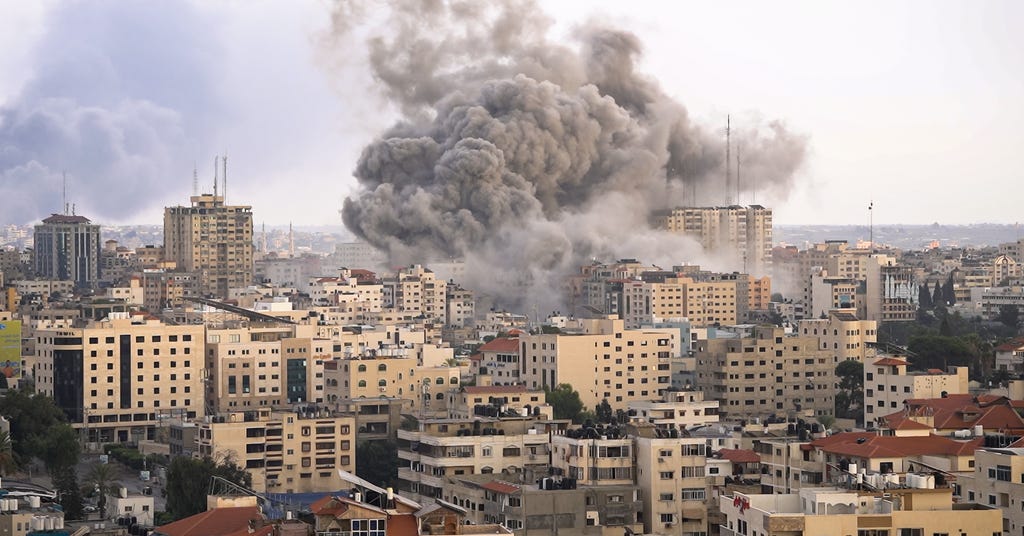Egypt-Israel Tensions Threaten Camp David Framework
Gaza buffer zone disputes fracture longtime peace partners.
Israel has expanded buffer zones inside Gaza, shrinking Palestinian-accessible territory by more than half, with soldiers systematically destroying civilian infrastructure within a kilometer of the Israeli border. Israel’s southern Gaza buffer zone now stretches from the Egypt border to Khan Younis—encompassing the entire city of Rafah and representing 20% of the Gaza Strip.
Image: Israeli airstrike on Gaza Strip during Gaza War 23-25, by Jaber Jehad Badwan, licensed under CC BY-4.0
Tensions have escalated between Israel and Egypt over military activities in Egypt’s Sinai Peninsula, deepened by President Trump’s suggestion that Palestinians from Gaza move into Egypt—a proposal Cairo has rejected. Israel has informed Arab states including Egypt, Jordan, and the UAE of its plans for permanent buffer zones as part of postwar Gaza arrangements.
The dispute threatens the 1979 Camp David Accords’ foundation. Egypt fears mass displacement into Sinai could destabilize a region already plagued by insurgency, while Israel maintains buffer zones are essential for preventing future October 7-style attacks. Israel ceased humanitarian aid entry to Gaza in March 2025, with Defense Minister Israel Katz stating “no humanitarian aid will enter Gaza” as a pressure lever against Hamas.
This fracture between longtime peace partners occurs as regional coordination remains vital for Gaza’s future. Egypt’s public objection signals new red lines that could embolden outside powers to test the post-Camp David order.
Our Take: Egypt-Israel tensions over Gaza reveal how even the most durable peace frameworks can fracture under new pressures. Cairo’s public objections signal new red lines that could unravel decades of regional stability.

